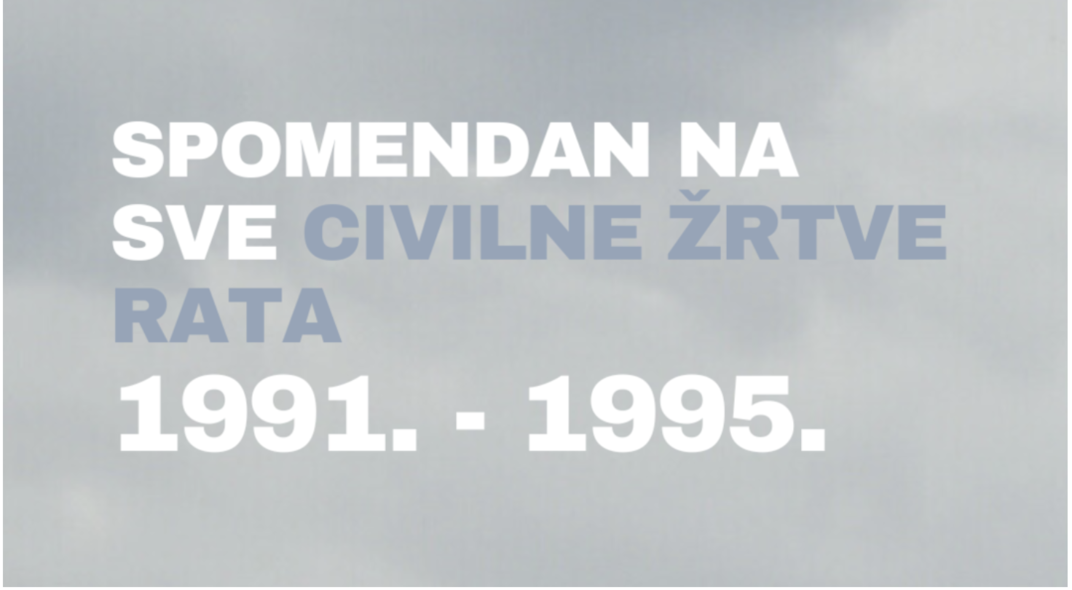Joint statement of the Youth Initiative for Human Rights - Croatia and the Youth Initiative for Human Rights - Serbia
Activists of the Youth Initiative for Human Rights - Croatia and the Youth Initiative for Human Rights - Serbia remembered the civilian victims of the war in Croatia (1991-1995) with a joint visit to Medari and Zagreb. On the 29th anniversary of these crimes, we remind the authorities of Croatia and Serbia of the obligation to prosecute war crimes, to cooperate in the search for missing persons, as well as to ensure fair reparations for all victims.
The 2nd of May is significant for multiple reasons. On that day in 1991, in response to the death of Franko Lisica and the events in Borovo Selo, more than a hundred shops owned by Serbs and companies from Serbia were destroyed, which led to the mass persecution of citizens of Serbian nationality from Zadar. On the same day in 1995, the military-police operation "Bljesak" ended, which was launched a day earlier by the Croatian military and police forces with the aim of liberating the territory of western Slavonia. Although the reintegration of the Croatian territory was a legitimate goal, 22 Serb civilians were killed during the operation in the village of Medari, refugee columns were attacked and abandoned property was destroyed while many Serb refugees never returned to their homes.
On the same day, the forces of the Republic of Srpska Krajina retaliated by shelling Zagreb and the surrounding towns, during which 7 people, including civilians, were killed in Zagreb, and 214 of them were wounded in the attacks on Zagreb's main square and the wider city center area. Milan Martić was found responsible for the rocket attack on Zagreb before the International Criminal Tribunal for the former Yugoslavia and, in October 2008, sentenced to 35 years in prison for crimes against humanity and violations of the laws and customs of war.
To this day, no one has been held criminally accountable for the crimes committed during Operation Bljesak, and there is still no mention of civilian victims of Serbian nationality in the celebratory speeches commemorating the operation. In 2012, the Youth Initiative for Human Rights - Croatia filed a crimimal complaint against the perpetrators of war crimes against prisoners of war committed during this military-police operation, which to date has not resulted in the prosecution of the perpetrators.
In both cases, civilians of both nationalities suffered the most, but in the dominant memory in Croatia there is only room for those who belonged to the majority population, that is, those who fit into the Croatian dominant narrative about the war. Within the framework of the national memory policy in Serbia, there are no convictions for crimes against Croatian civilians while nly Serb victims are mentioned. However, not those citizens of Serbian nationality who were forcibly mobilized, and who were most often refugees from Croatia and Bosnia and Herzegovina.
Recommendations:
In order to satisfy justice and ensure respect for the rights of all civilian victims of war and their families, regardless of their nationality, we demand from the highest officials of Croatia and Serbia:
- to accelerate the search for the missing persons and ensure the prosecution of war criminals regardless of the nationality or ethnic origin of the perpetrators and their victims
- to ensure complete and continuous judicial cooperation with countries in the region in the prosecution of war crimes
- to pass a law on civilian victims of the war in Serbia that would enable and facilitate the exercise of their rights guaranteed by the constitution and international acts valid in Serbia
- to ensure the non-discriminatory application of the Law on Civilian Victims of the Homeland War in Croatia so that all civilian victims of war can realize the status and be granted the associated rights
Finally, we consider the 2nd of May a symbolically important date because, on the same day, a large number of civilians of both Croatian and Serbian nationality – all citizens of the Republic of Croatia – lost their lives. National or any other identity must never be an obstacle to realizing the rights of these and all other victims to justice, truth and reparations. For this reason, we are advocating for this day to be declared a Memorial Day in the memory of all civilian victims of the war and for it to be marked in an appropriate place. We want a society that respects all victims regardless of any identity traits - including nationality - a society that considers peace its greatest value. Ultimately, we want a society that will not accept largely biased and exclusionary attitudes towards war fostered by the wartime and today’s political representatives to be something to be approved of and something to be proud of.
The construction of a post-conflict society and the restoration of broken social ties is a thankless task placed upon the generations that did not participate in the war in any way. We bravely take on this task and responsibility in order to contribute to the process of reconciliation and the building of societies that we will be able to say we are proud to be a part of.
